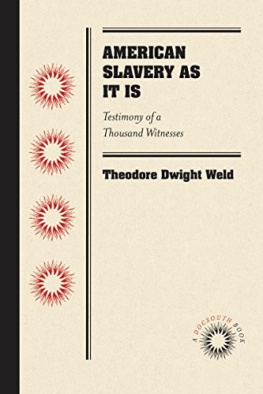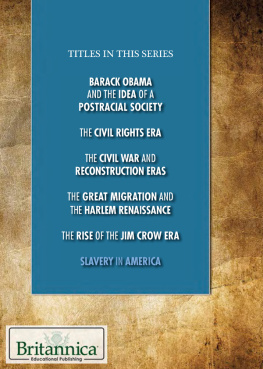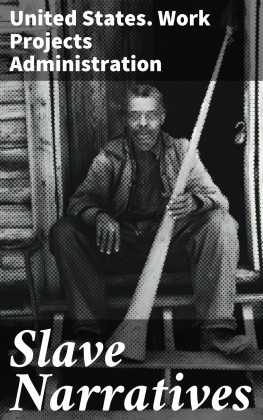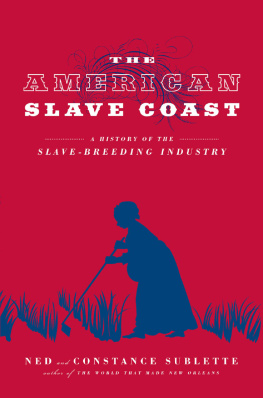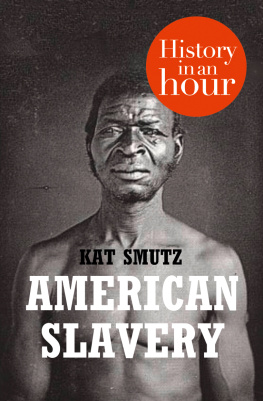Theodore Dwight Weld
American Slavery as It is
Testimony of a Thousand Witnesses
Madison & Adams Press, 2019
Contact:
This is a publication of Madison & Adams Press. Our production consists of thoroughly prepared educational & informative editions: Advice & How-To Books, Encyclopedias, Law Anthologies, Declassified Documents, Legal & Criminal Files, Historical Books, Scientific & Medical Publications, Technical Handbooks and Manuals. All our publications are meticulously edited and formatted to the highest digital standard. The main goal of Madison & Adams Press is to make all informative books and records accessible to everyone in a high quality digital and print form.
Table of Contents
Introduction
Reader, you are empannelled as a juror to try a plain case and bring in an honest verdict. The question at issue is not one of law, but of fact--"What is the actual condition of the slaves in the United States?" A plainer case never went to a jury. Look at it. TWENTY-SEVEN HUNDRED THOUSAND PERSONS in this country, men, women, and children, are in SLAVERY. Is slavery, as a condition for human beings, good, bad, or indifferent? We submit the question without argument. You have common sense, and conscience, and a human heart;--pronounce upon it. You have a wife, or a husband, a child, a father, a mother, a brother or a sister--make the case your own, make it theirs, and bring in your verdict. The case of Human Rights against Slavery has been adjudicated in the court of conscience times innumerable. The same verdict has always been rendered--"Guilty;" the same sentence has always been pronounced, "Let it be accursed;" and human nature, with her million echoes, has rung it round the world in every language under heaven, "Let it be accursed. Let it be accursed." His heart is false to human nature, who will not say "Amen." There is not a man on earth who does not believe that slavery is a curse. Human beings may be inconsistent, but human nature is true to herself. She has uttered her testimony against slavery with a shriek ever since the monster was begotten; and till it perishes amidst the execrations of the universe, she will traverse the world on its track, dealing her bolts upon its head, and dashing against it her condemning brand. We repeat it, every man knows that slavery is a curse. Whoever denies this, his lips libel his heart. Try him; clank the chains in his ears, and tell him they are for him; give him an hour to prepare his wife and children for a life of slavery; bid him make haste and get ready their necks for the yoke, and their wrists for the coffle chains, then look at his pale lips and trembling knees, and you have nature's testimony against slavery.
Two millions seven hundred thousand persons in these States are in this condition. They were made slaves and are held such by force, and by being put in fear, and this for no crime! Reader, what have you to say of such treatment? Is it right, just, benevolent? Suppose I should seize you, rob you of your liberty, drive you into the field, and make you work without pay as long as you live, would that be justice and kindness, or monstrous injustice and cruelty? Now, every body knows that the slaveholders do these things to the slaves every day, and yet it is stoutly affirmed that they treat them well and kindly, and that their tender regard for their slaves restrains the masters from inflicting cruelties upon them. We shall go into no metaphysics to show the absurdity of this pretence. The man who robs you every day, is, forsooth, quite too tender-hearted ever to cuff or kick you! True, he can snatch your money, but he does it gently lest he should hurt you. He can empty your pockets without qualms, but if your stomach is empty, it cuts him to the quick. He can make you work a life time without pay, but loves you too well to let you go hungry. He fleeces you of your rights with a relish, but is shocked if you work bareheaded in summer, or in winter without warm stockings. He can make you go without your liberty, but never without a shirt. He can crush, in you, all hope of bettering your condition, by vowing that you shall die his slave, but though he can coolly torture your feelings, he is too compassionate to lacerate your back--he can break your heart, but he is very tender of your skin. He can strip you of all protection and thus expose you to all outrages, but if you are exposed to the weather, half clad and half sheltered, how yearn his tender bowels! What! slaveholders talk of treating men well, and yet not only rob them of all they get, and as fast as they get it, but rob them of themselves, also; their very hands and feet, all their muscles, and limbs, and senses, their bodies and minds, their time and liberty and earnings, their free speech and rights of conscience, their right to acquire knowledge, and property, and reputation;--and yet they, who plunder them of all these, would fain make us believe that their soft hearts ooze out so lovingly toward their slaves that they always keep them well housed and well clad, never push them too hard in the field, never make their dear backs smart, nor let their dear stomachs get empty.
But there is no end to these absurdities. Are slaveholders dunces, or do they take all the rest of the world to be, that they think to bandage our eyes with such thin gauzes? Protesting their kind regard for those whom they hourly plunder of all they have and all they get! What! when they have seized their victims, and annihilated all their rights, still claim to be the special guardians of their happiness! Plunderers of their liberty, yet the careful suppliers of their wants? Robbers of their earnings, yet watchful sentinels round their interests, and kind providers for their comfort? Filching all their time, yet granting generous donations for rest and sleep? Stealing the use of their muscles, yet thoughtful of their ease? Putting them under drivers, yet careful that they are not hard-pushed? Too humane forsooth to stint the stomachs of their slaves, yet force their minds to starve, and brandish over them pains and penalties, if they dare to reach forth for the smallest crumb of knowledge, even a letter of the alphabet!
It is no marvel that slaveholders are always talking of their kind treatment of their slaves. The only marvel is, that men of sense can be gulled by such professions. Despots always insist that they are merciful. The greatest tyrants that ever dripped with blood have assumed the titles of "most gracious," "most clement," "most merciful," &c., and have ordered their crouching vassals to accost them thus. When did not vice lay claim to those virtues which are the opposites of its habitual crimes? The guilty, according to their own showing, are always innocent, and cowards brave, and drunkards sober, and harlots chaste, and pickpockets honest to a fault. Every body understands this. When a man's tongue grows thick, and he begins to hiccough and walk cross-legged, we expect him, as a matter of course, to protest that he is not drunk; so when a man is always singing the praises of his own honesty, we instinctively watch his movements and look out for our pocket-books. Whoever is simple enough to be hoaxed by such professions, should never be trusted in the streets without somebody to take care of him. Human nature works out in slaveholders just as it does in other men, and in American slaveholders just as in English, French, Turkish, Algerine, Roman and Grecian. The Spartans boasted of their kindness to their slaves, while they whipped them to death by thousands at the altars of their gods. The Romans lauded their own mild treatment of their bondmen, while they branded their names on their flesh with hot irons, and when old, threw them into their fish ponds, or like Cato "the Just," starved them to death. It is the boast of the Turks that they treat their slaves as though they were their children, yet their common name for them is "dogs," and for the merest trifles, their feet are bastinadoed to a jelly, or their heads clipped off with the scimetar. The Portuguese pride themselves on their gentle bearing toward their slaves, yet the streets of Rio Janeiro are filled with naked men and women yoked in pairs to carts and wagons, and whipped by drivers like beasts of burden.

